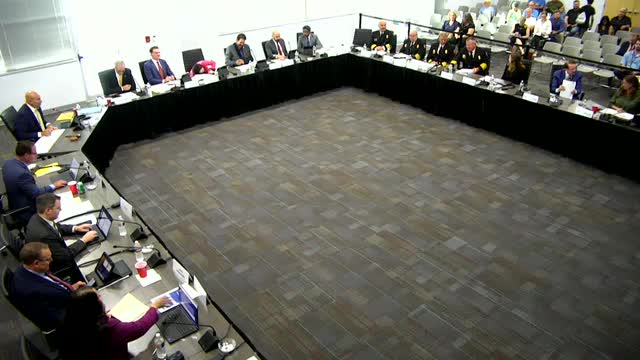Article not found
This article is no longer available. But don't worry—we've gathered other articles that discuss the same topic.
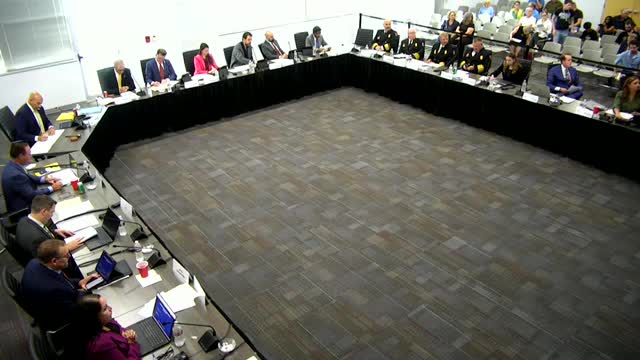
Senior resident urges Richardson to keep neighborhood pools open later after schools start
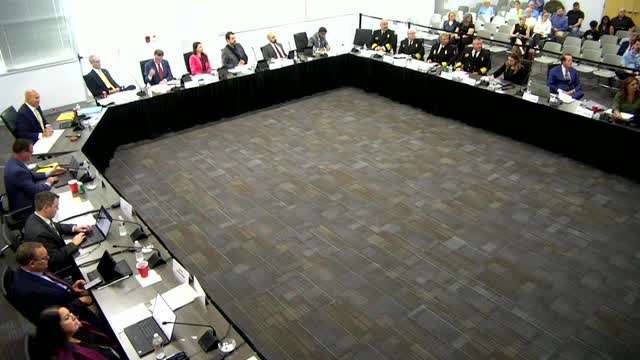
Residents urge Richardson council to oppose DART service cuts tied to proposed 5% general mobility plan funding shift
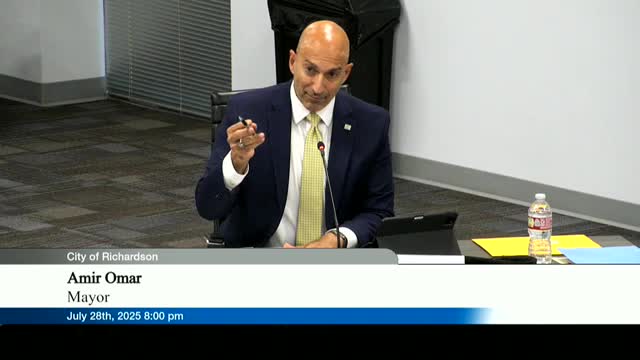
Council approves PD for large warehouse at Breckenridge and Telecom with added street‑tree commitments
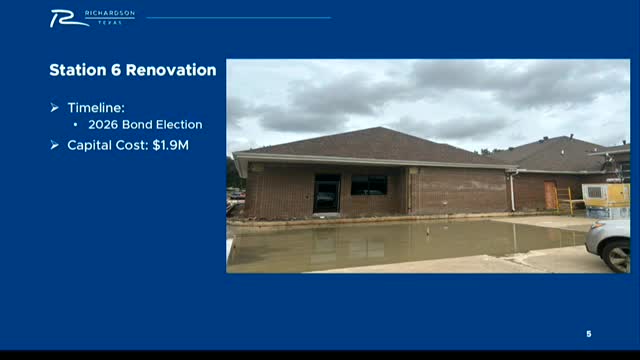
Council approves mobile‑order pickup only drive‑through at former Wendy’s site on West Spring Valley
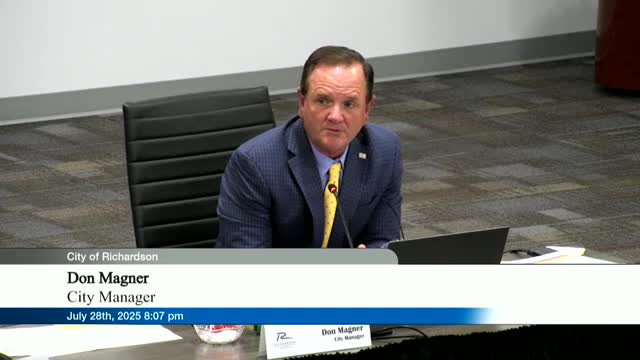
After‑action: Richardson upgrades SCADA, training and staffing steps after November boil‑water notice
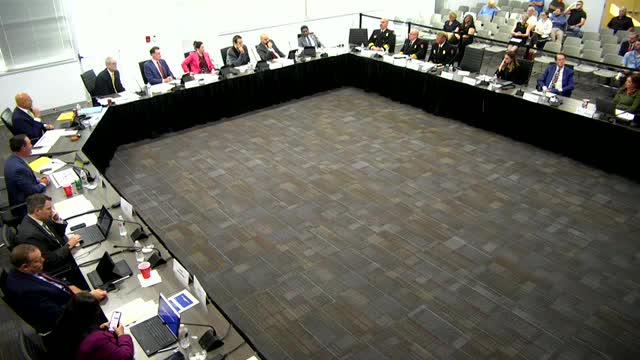
Council hears $20M water/wastewater maintenance plan and 8/25 pressure‑zone project status
